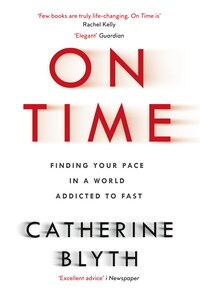There is enough time
Hurry up.
Is this your catchphrase? It used to be mine. I lived like a criminal, always on the run, but perpetually running late. For the life I never got around to living, there was never enough time. Each day I climbed onto an accelerating treadmill, and each evening my to-do list grew longer, just like Pinocchio’s nose. It was as if all my good intentions were lies whose only productive property was to create more of themselves.
Until I realised that there is enough time – if you stop trying to outrace the clock. This book explains how such a change is possible, even for a hurry slave like me. It is for anyone who longs to understand time better: what it is, where it goes and how to get it back.
Time is a dangerous subject to tackle. Once you begin exploring this thing that permeates everything, where to stop? But I had to take it on; I was too time-boggled not to. It was also increasingly clear to me that my problem, as personal and painful as it felt, was not mine alone.
Rising numbers of us rattle through our weeks, feeling like the inadequate servants of an insatiable mob of commitments. On the rare occasions that we leave work on time, we slink out, guilty as adulterers. Many friends, outwardly successful, appear trapped in a busy loneliness. Life passes in a blur of images glimpsed from their runaway train.
At first I imagined this was a generational issue. Now I see it is systemic. Our world is on fast-forward – bursting with miraculous new ways to be speedy, spontaneous, melting the boundaries of time and space. We are barnacled by gadgets that let us contact anyone, instantly, in any time zone, without stirring from our chair. Countless products promise to save us time. Yet time hunger is the defining challenge of our age. If we flounder, we feel as if we are failing personally, because living in conditions of extreme time pressure has come to seem normal. In fact, this situation is both odd and new.
How do we respond to the challenges? I know exhausted souls who nevertheless haul themselves out of bed at 5 a.m. to meditate, to calm themselves in preparation for the day’s onslaught. One acquaintance calculated that since the week contains 168 hours, she can fit in the travel required for her job and sufficient face-time (her phrase) with her sons – provided she forgets about me-time, and her partner, and rations her sleep to four hours per night. Another working couple meet on Sunday nights to argue about how to cudgel in a minimum of one fun evening together the following week. I am not sure why they do not have fun on Sundays, although I am fairly certain it is not anything to do with religious scruples.














